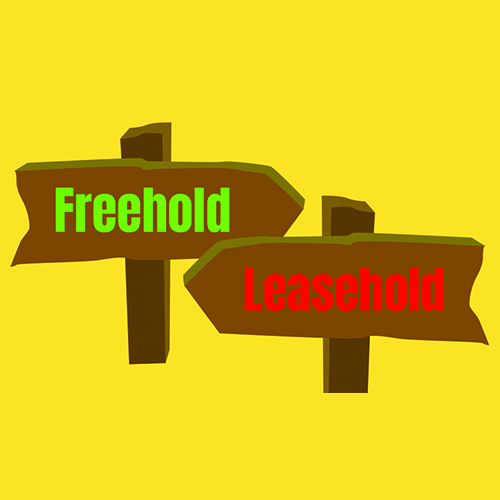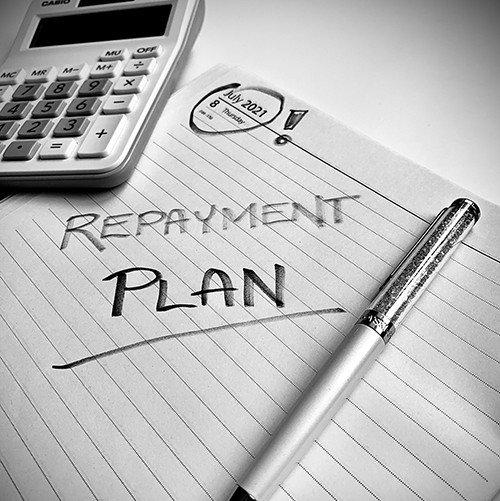
How to Prepare for a Mortgage?
19 July 2021
Freehold and Leasehold – What’s the Difference?
31 August 2021
Although there are many mortgage products available on the market from various lenders today, there are only two main methods you can use to repay your mortgage:
- capital repayment; and
- interest-only with repayment vehicle in place.
The capital repayment method will be the one the lenders will most likely link to the residential mortgage products they offer.
Capital Repayment Mortgage
So, what exactly is the Capital Repayment Mortgage?
When paying off your mortgage using the capital repayment method, you will be making monthly payments that will be comprised of:
- a capital element, which pays off the outstanding loan amount over the agreed term of the mortgage; and
- an interest element, which is charged by the lender on the outstanding mortgage loan.
Assuming that over the lifetime of the mortgage the monthly payments will be made regularly, the mortgage loan will be repaid in full by the end of the mortgage term. And if you would be making overpayments, which many lenders now agree to, you are more likely to repay the mortgage earlier. You can do it by overpaying your monthly regular payments or you could pay an occasional lump sum of money toward your loan reduction. Of course, this needs to be done within agreed overpayment allowance limits provided by the lender, i.e. a maximum of 10% of the outstanding loan amount each year, or else you might be charged early repayment changes (ERC). Either way, the overpayments could help reducing your mortgage term, assuming you will not be paying less than your regular monthly instalments.
How high your monthly mortgage payments would be is dependent on many factors and your personal circumstances, such as how long you took the mortgage for, the interest rate assigned to the mortgage product you took, and your overall affordability (how much you can afford to borrow).
Lenders arrive at the affordability figure by examining:
- various proofs of your income – for instance, payslips and P60 forms for the employed; and self-assessment forms and tax year overviews for the self-employed
(Please, note that these are not the only proofs); - your basic life expenditures – for instance, basic food and travel costs, utility bills, council tax bill, etc.;
- your other financial commitments – such as other personal loans, credit card(s) debt, pension commitments, student loans or hire purchase agreements you might have taken on.
Please, be assured that in taking all of these circumstances into account, it is not lenders’ purpose to make getting your mortgage more difficult. They need to make sure you can afford to make regular monthly payments for the amount you’ve borrowed so that you could keep your house without financial struggle.
Interest-Only Mortgage with a Repayment Vehicle
The other way of arranging a mortgage loan is to take it on the interest-only basis with repayment vehicle in place.
It is a mortgage where you would pay on monthly basis only an interest charged by the lender during the lifetime of the mortgage. This makes the monthly mortgage payments considerably lower than in the case of the repayment mortgage. However, at the end of the mortgage term, you are fully responsible to pay off the entire capital amount of the mortgage in a lump sum payment. This is why the repayment vehicle is required. You are also entitled to make overpayments (within lender’s limits) which should help reducing your outstanding loan amount during the lifetime of the mortgage.
The lenders are obligated to check if you have an acceptable vehicle in place whereby you could accumulate the outstanding capital over the lifetime of the mortgage and be in a position to pay it off in full by the end of the mortgage term.
The interest-only mortgages are much more popular with property investors, as their final repayment method is usually to sell the mortgaged property at the end of the term and thus repay the loan in full. But again, please, bear in mind that this might not be the only way to pay it off in full.
Here at NEST, our advisors will thoroughly examine your personal circumstances and needs and will choose the most appropriate mortgage strategy for you. We are whole-of-market brokers and we would be delighted to guide you through the whole application process. Do let us know if this article was helpful to you. And do not hesitate to contact us on 01202 090 008 for any further guidance.
Think carefully before securing debts against your home. Your home may be repossessed if you do not keep up repayments on your mortgage or any other debt secured on it.

